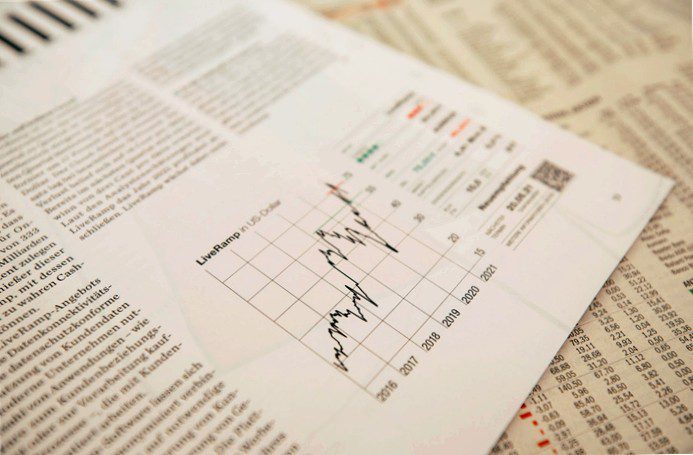Index funds vs. actively managed funds – which advantages you benefit from ETFs
If you want to invest in funds nowadays, you have two major groups to choose from. On the one hand there are the classical funds, to which for example share funds or also open real estate funds rank. On the other hand, so-called exchange-traded funds, which are certainly better known to most investors and savers by the abbreviation ETFs, have now been offered on the market for more than ten years. However, many market players do not know what the differences between these two fund variants actually are and why ETFs are now the better alternative in the view of experts. Exactly this question we would like to go into in more detail in our article. We explain what distinguishes actively managed funds on the one hand and ETFs on the other hand. We will also discuss the advantages of index funds in direct comparison with active funds.
How do actively managed funds work?
Before we go into more detail about the differences and, as it were, the advantages of ETFs with regard to actively managed funds, we would like to briefly explain by way of background how both types of funds work in detail. Actively managed funds are usually classic investment funds that are also readily offered on the market as mutual funds. A typical feature of these funds is that they are actively managed. This means that the fund manager tries to select the best underlyings for the fund based on his experience and knowledge.
Basically, actively managed funds can be divided into the following categories:
- Money market funds
- Bond funds
- Open-ended real estate funds
- Equity funds
- Mixed funds
Ideally, active fund management should ensure that the performance of the respective fund share exceeds that of the market average. This is the main argument used by active funds to attract investors and savers. Actively managed funds function accordingly in such a way that the fund manager selects promising stocks, for example, and these are included in the portfolio. The investor notices the performance by the fact that the prices of the individual fund share change, which are set by the respective fund company.
How Exchange Traded Funds work?

In the case of index funds, the ETFs 1 Exchange Traded Funds (ETF) at a glance – https://www.bafin.en/en/consumer/financial-knowledge/WA/ETF/ETF_node.html – retrieved on 05.08.22 , they are also investment funds. However, these work somewhat differently than it is the case with the actively managed funds described above. One difference is that the units of passive funds, as ETFs are also called, can be traded on the stock exchange. This often results in more transparency for the investor, because the prices are formed on the basis of supply and demand and are not fixed by the fund company or the investment company. calculated.
A second difference is the way they work. In the case of ETFs, so-called passive management takes place. This means that the fund manager has the task of replicating an underlying base index. This means that the investor does not have to select individual stocks on the basis of his experience and knowledge, but has the task, for example, of acquiring all 40 DAX stocks in the same weighting as they are represented in the German Share Index. This is exactly why these ETFs are also called passive funds, because the index is passively tracked.
Advantage 1: Greater transparency of ETFs due to stock exchange listing
A first advantage that speaks for ETFs compared to actively managed funds is the already briefly mentioned stock exchange listing. For investors, it is easier and also more transparent to track the pricing of index funds. This simply results on the basis of supply and demand, as is the case, for example, when trading stocks. In contrast, the price of actively managed funds is calculated exclusively by the fund company. Accordingly, the shares of open-end funds can only be returned to the fund company and cannot be sold on an exchange.
Advantage 2: Significantly lower costs with ETFs
The second advantage is at the same time, from the point of view of most investors and savers, the main advantage that speaks in favor of ETFs compared to actively managed funds. It's all about the total cost ratio. This is quite often more than two percent for actively managed funds, especially for equity funds or for mixed funds. In contrast, the expense ratio for ETFs usually averages 0.4 to 0.6 percent. The customer saves as in part whopping 1.5 percent in annual costs. That, in turn, means in the math that the return can be 1.5 to almost two percent higher on average for ETFs in that regard simply because of the lower costs.
The reason for the significant differences in costs is mainly due to the management that has already been mentioned. Of course, it is much easier for the fund manager to perform his tasks with an ETF. After all, he only has to replicate an index and acquire the corresponding shares in a ratio of 1:1. The manager of an active fund, on the other hand, has to select individual stocks based on his experience and knowledge and try to do better than the market average. Therefore, it is mainly the so-called management fee that contributes significantly to the cost difference.
In sum, the total cost of actively managed funds is usually made up of the following components:
- Management fees
- Management fees
- Front-end load
The issue surcharge, for example, does not exist at all with ETFs. On the other hand, for actively managed funds, this can easily be four or five percent. If we assume an investment period of five years, the front-end load of five percent would be distributed at one percent per year and would have to be added to the total expense ratio accordingly. So the bottom line is that most ETFs have a significant cost advantage over actively managed funds, which has a positive impact on potential returns.
Advantage 3: Composition of the fund for investors with ETFs easily understandable
A third advantage of ETFs over actively managed funds is that the composition is easier for investors to understand. With actively managed equity funds, savers and investors often don't know the details of the stocks the fund has in its portfolio. You would first have to look at a fund portrait, which usually shows the composition of the fund. With ETFs, on the other hand, it's easy to get an idea of the composition.
If, for example, you have invested your money in a DAX ETF, you know immediately that it is precisely the 40 DAX stocks that are also included in the fund portfolio in the same weighting as in the index. Because of this clear composition, as an investor, you have a little easier time targeting specific industries and regions for investment. If, for example, you would like to spread your capital as widely as possible across the world in shares, you do not have to spend a lot of time looking for a suitable actively managed fund that has the composition you want. Instead, you choose, for example, an index fund that has, for example, the MCSI World Index as its underlying asset. Then you know immediately that you invest capital broadly spread over the ETF in world-wide large public limited companies.
Advantage 4: Total return of ETFs more often higher than equity funds
The fourth advantage arises to a greater extent from the fact that precisely ETFs usually have a significantly lower expense ratio than actively managed funds. The return of a fund consists of two components, namely on the one hand the value development (performance) and on the other hand the costs. So if an ETF and an actively managed fund have performed the same as a percentage, the index fund will typically have the better return because the cost to the investor is lower.
However, it is not uncommon in practice for it to additionally happen that the index fund can actually outperform the actively managed fund. Of course, this is not a satisfactory result for the active fund. After all, the goal of actively managed funds is to outperform the market average. In practice, on the other hand, there are many ETFs that outperform actively managed funds. This refers specifically to equity funds, which have the best average returns among active funds.
Advantage 5: Easy selection with index funds
A further advantage of the index funds in relation to the actively managed funds consists of the fact from view of not few investors and savers that a purposeful selection is simpler. For this, let's assume that you want to invest in the IT industry, for example. If you are now looking for a suitable actively managed fund, it is more costly to find funds from this category at all. There are no good selection criteria in this respect, in that you would, for example, be shown all equity funds directly via a certain search term that have a focus on IT stocks.
With exchange traded funds, the search is usually much easier and faster. All you have to do is find a sector index that is dedicated to the IT sector. Then you just have to look at the corresponding ETSs that are just related to this sector index.
In practice, it is usually easier to find ETFs that match one's investment goals than an actively managed fund. In addition, the index funds are easier to compare with each other. If, for example, you would like to invest specifically in the German share index, you would only have to enter the term "DAX ETF" in a Google search, for example, and you would be directly shown numerous passive funds that have the DAX as their underlying index.
Are there any advantages at all to actively managed funds?
With the aforementioned advantages that ETFs have over actively managed funds, the question is whether, on the other hand, there are any advantages at all to equity funds or other open-end funds over index funds? Basically, there is only one possible advantage to be mentioned here, which however – as described before – more often does not come into effect in practice. The advantage is that with actively managed funds there is at least the possibility that the return is better than the market average.
With ETFs, such an outperformance is not possible, because only one index and thus the corresponding market average is tracked. In practice, of course, some actively managed funds also manage to perform better than a possible benchmark index. In practice, however, this does not apply to many equity funds, so that this advantage often does not come into play.
Conclusion on index funds vs. Active fund
Our article shows that in a direct comparison between ETFs and active funds, index funds have a number of advantages. In practice, this has led investors and savers to increasingly opt for exchange-traded funds rather than actively managed funds, such as equity funds. In the meantime, there is even a kind of mixture between ETFs and equity funds, namely the so-called smart ETFs. Here, the respective fund manager has somewhat greater room for maneuver and can deviate – usually slightly – from the specified index.
| Exchange Traded Funds (ETF) at a glance – https://www.bafin.en/en/consumer/financial-knowledge/WA/ETF/ETF_node.html – retrieved on 05.08.22 |
Continue reading

Optimal provision for your old age – This… Private provision for old age now has a high priority in Germany. Statistically, it is after the..

Call money in the low interest rate phase – how to get better… The low interest rate phase has now lasted for more than five years. However, a turnaround in interest rates has occurred since a few..

ETF savings plan for children – targeted for the offspring… Many parents already ask themselves after the birth of the child, in what form they can best regularly provide for the..
Oliver Schoch
Oliver Schoch is a banker and financial journalist. As part of his specialization, he has been writing articles on various financial topics such as the stock market, insurance, financing and investment for 14 years. Oliver Schoch is happy to give readers advice on everyday finance and shows how interesting and everyday the subject of finance is in practice.